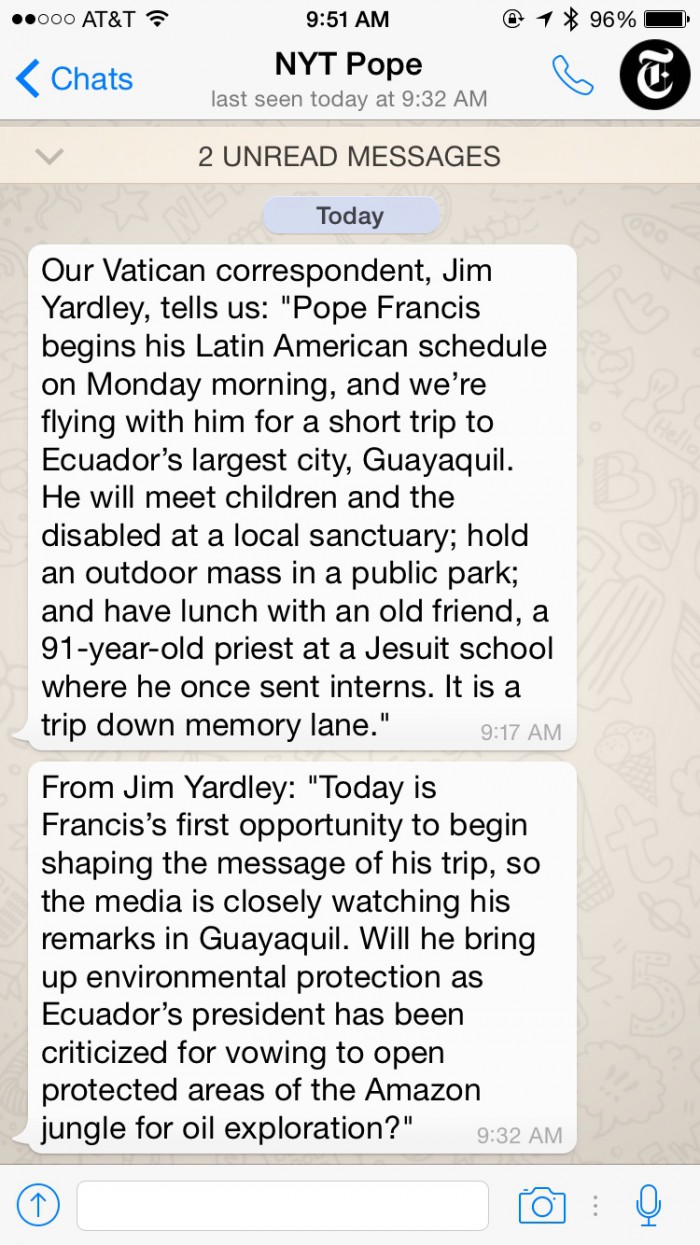That unique confluence of New York Times readers, pope watchers, and WhatsApp users must have been excited on a recent June morning when The New York Times announced it would be experimenting with the messaging app to deliver updates on Pope Francis’ visits to Ecuador, Bolivia, and Paraguay.
The tour began yesterday when the Pope landed in Ecuador and will last for nine days, during which time the Times will be sending updates via WhatsApp to those who signed up. In a post written to announce the experiment, the Times laid out the not-entirely-uncomplicated steps to join what is essentially a gigantic one-way group chat:
To subscribe to this account:
1. Download WhatsApp on your phone.
2. Save this number, 347-346-3429, in your phone’s contacts.
3. Text “POPE” to that number via your WhatsApp account.
You can unsubscribe at any time by texting “UNSUBSCRIBE” to the same number.
The updates, of which there have been a handful so far, have been a reporter’s notebook style briefing where Jim Yardley, the Times’s Rome bureau chief, plays narrator:
the @nytimes, for the first time publishing on Whatsapp. pic.twitter.com/211j6dPwko
— Sam Dolnick (@samdolnick) July 5, 2015

As the Times and other publishers look to external distribution platforms, the sheer size of WhatsApp’s audience has made it a platform of interest, despite how awkward it can be as a publishing platform. The BBC used WhatsApp to provide information to those in Ebola-stricken areas.
3 comments:
Hii, do you know how do they do that?? I think that they have an special permission because a bradcast list has maximum number of user in a list.
I don’t know for certain, but I believe the standard workaround is just to have multiple broadcast lists. (I think the max is 256 per list.)
461230 872718I took a break to view your write-up. I located it really relaxing 880912
Trackbacks:
Leave a comment